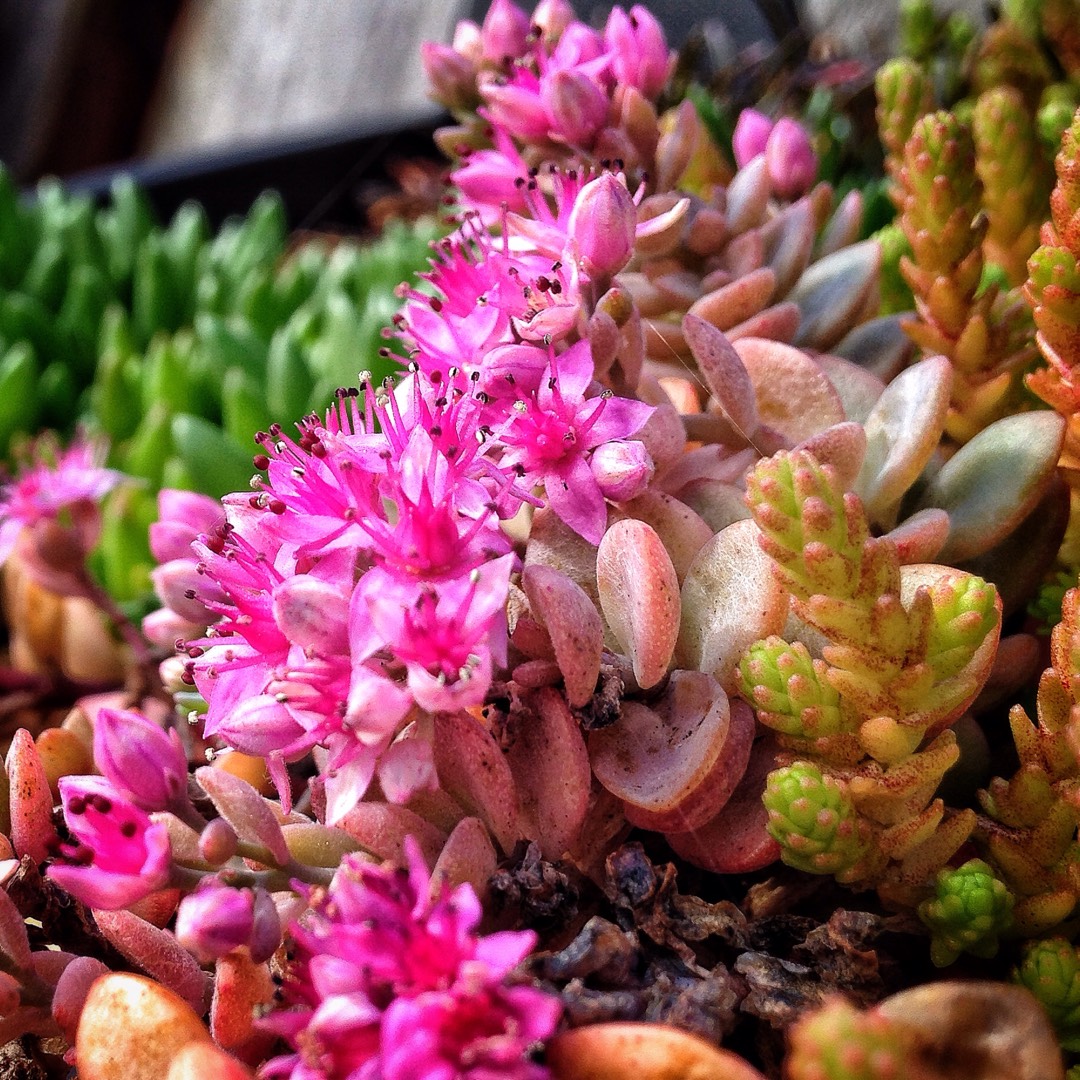
Sedum Cyaneum Sakhalin
Sedum 'Sakhalin'
Stonecrop 'Sakhalin' is an alpine with small, attractive blue-pink foliage. Clusters of small, bright pink flowers from mid to late summer. Height 5cm. Spread 20cm.
-
Full sun
-
Very little water
-
Not Frost hardy
-
Light and free draining
Common name
Sedum 'Sakhalin'
Latin name
Sedum Cyaneum Sakhalin
type
Succulent
family
Crassulaceae
ph
5.0 - 7.0 Acid - Neutral
Plant & bloom calendar
-
Best time to plant
-
When the plant will bloom
full grown dimensions
 0.20 M
0.05 M
0.20 M
0.05 M
Sedum Cyaneum Sakhalin
Stonecrop 'Sakhalin' is an alpine with small, attractive blue-pink foliage. Clusters of small, bright pink flowers from mid to late summer. Height 5cm. Spread 20cm.
Planting
From Early Spring TO Early Spring
They can be propagated easily by separating offsets, but also by leaf cuttings, and by seed if they are not hybrids. Succulents need a warm, sunny well-drained position to develop their foliage colour. Most succulents will be grown in containers and pots and they will need good drainage. Add coarse grit to soil-less compost and repot every year in late-spring. Don't worry about damaging the roots when re-potting: these plants tolerate disturbance well.
Flowering
From Early Spring TO Late Summer
Flowers on short stalks (cymes) arise from compact rosettes of succulent fleshy, often brightly coloured leaves. Species are polycarpic, meaning that they may flower and set seed many times over the course of their lifetimes








